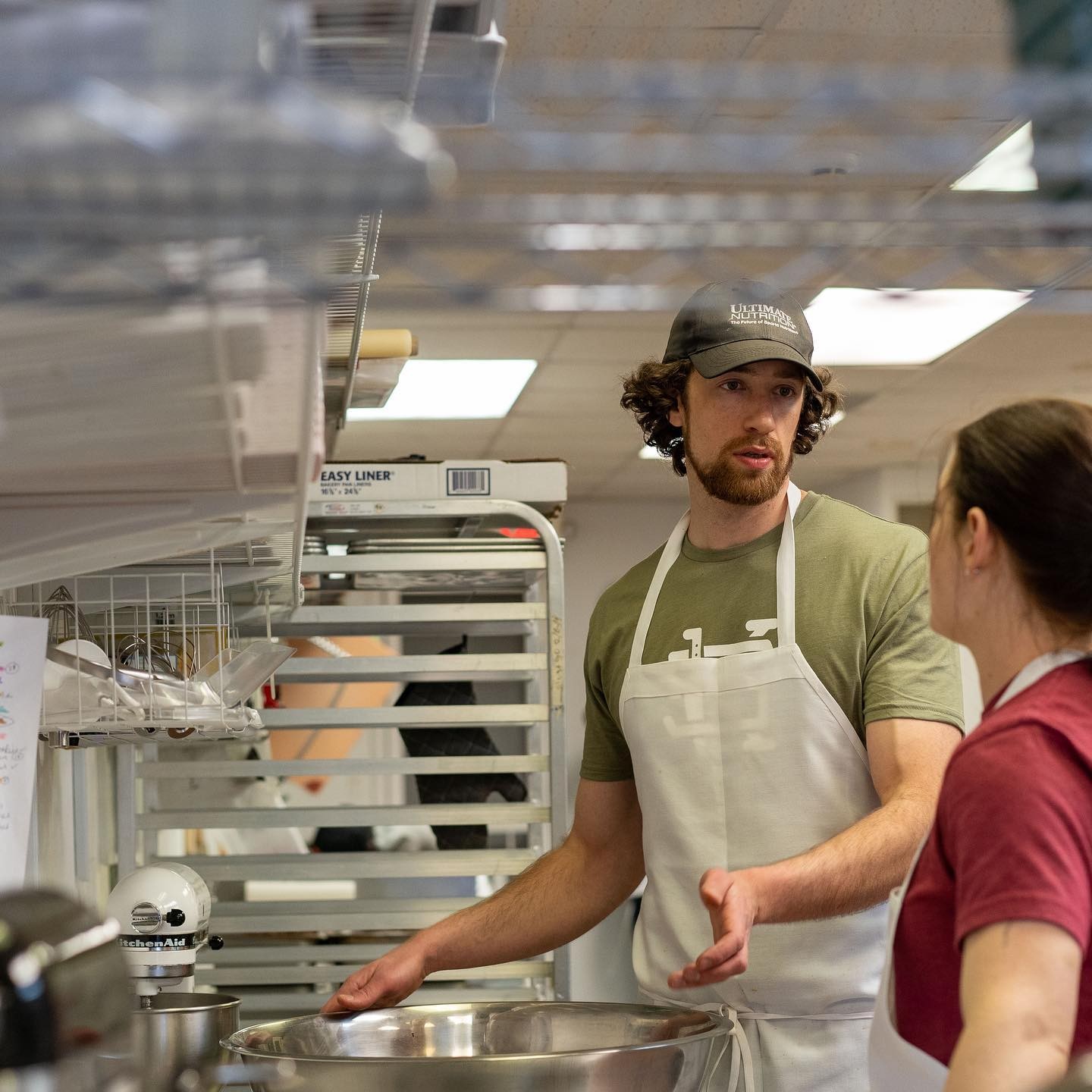We’re excited to introduce you to the always interesting and insightful Lucas Serwinski. We hope you’ll enjoy our conversation with Lucas below.
Lucas, appreciate you joining us today. What was it like going from idea to execution? Can you share some of the backstory and some of the major steps or milestones?
I can accurately recall my very first day of my very first job (Stop and Shop 2001) thinking that I did not want to work for someone else. Almost immediately, it didn’t feel “right” to me. I naturally craved independence both in job execution and strategizing as well as the risk/reward that came with having the greater onus of responsibility.
Naturally, at 16 I knew I couldn’t execute that dream, much less conceive of what it would be, but the closest and happiest I came to working for myself was pizza delivery. The success and productivity came down entirely to the ability of each driver to organize their orders, map their routes (no Google Maps then!) and engage with each customer for maximum tip. I loved the feeling of gaining more reward for more effort as well as having the freedom to make decisions based on the moment.
I held onto that feeling for years, knowing I would eventually find a career that satisfied those instincts.
My first foray into food service came a year after high school, after spending some months traveling and experiencing the joys and terrors of being an 18 year old riding a Greyhound bus around the US. Upon returning home I realized the Jack Kerouac lifestyle didn’t fit me – I need a lot of structure – and discovered that I enjoyed cooking. After some months spent cooking at home, watching hours of the Food Network and returning to work at the pizza restaurant, my mom and I discussed culinary school. After a visit to the now defunct New England Culinary Institute (NECI) in Burlington, VT, I was hooked and felt at my core this was my next step in life.
Culinary school was a challenge in that NECI had a partnership with a local hotel so that our classes like pastry, meat fabrication and line cooking were all done in within the business of the hotel so that every onion diced, salmon grilled and bread load baked went to paying customers. This was unique in that it was higher pressure and very “real” which helped prepare me for the restaurant industry…almost.
After having graduated and interning I was working at Arrows In Ogunquit, ME, at that time named the 14th best restaurant in the US. It was your typical high-pressure fine dining situation; long hours, lots of stress, lots of drinking, lots of hazing, a plethora of inappropriate work relationships and of course, great food. However it was the chef de cuisine, Justin Walker, who had the biggest impact on me. He has a fiery passion for excellence and never taking the easy way out and was very vocal about calling out my young BS and laziness when he saw it. I saw how working hard to make myself better and hold myself to a higher standard transformed how he viewed me and it was the first real moment in my life when I realized most of the challenges in life come from how I approach each situation and what standard I hold myself to. Gaining his respect was one of the most impactful events in my life and has led me to seek mentorship again and again.
Despite these amazing growth experiences, I did not want to remain in a traditional kitchen, working long grueling hours for middling pay, especially when looking at people who were in their 30s and 40s and already long burnt out. I decided to leave Arrows, return home to CT and try to find my next venture there. After a few restaurant jobs that could not satisfy my itch for creativity, I walked away from food service and applied for a job coaching young adults with learning disabilities. However, this company put me in a food-service related coaching position at Pfizer in their kitchens and I stayed there before moving onto a 5 year stint at Reliance Health where I was an employment and education counselor for adults with mental illness and drug addiction.
While there I was invited by a friend to workout at a home gym with a small group of serious weight lifters and had another awakening, the love of strength training. Being a science-minded individual, it wasn’t just the practical application I enjoyed but the physiological aspect. One of my first strength training books, Maximum Strength by Eric Cressey, mentioned he went to UCONN for Exercise Science. After a visit there, I began taking my pre-requisites at community college at night and weekends while working full time, eventually transferring to UCONN for the second half of the degree.
Because of my food-related background, I had the opportunity to work with graduate students on a ketogenic diet study, preparing meals for their participants. This led to another mentorship with the program head, Dr. William Kraemer and when it came time to look for an internship, he suggested Cressey Performance, owned by Eric Cressey, leading my full circle to the person who inspired me to attend UCONN in the first place.
I was still working at Reliance Health and traveling multiple days per week to and from Cressey Performance in MA, about 90 minutes each way. However, it was so exciting to be there working alongside the industry’s best coaches as well as some professional athletes that the time flew by.
While interning, I noticed time and again how many athletes, be it high school, college or pro, ate low quality diets consisting of low protein and highly processed ingredients. I began thinking how great it would be for these athletes to walk into the facility they train in, and leave with a meal that was made from scratch and constructed for their individual goals. It felt like a true lightbulb moment for me and I knew it was a legitimate business idea that I could implement when the opportunity arose.
After finishing my internship, one of the coaches from Cressey Performance, Tony Gentilcore, asked me if I was looking for a job. At the time, I had returned to social work full-time while applying for jobs but I was unhappy living in my hometown and wanted a big change. I had been planning on moving to San Diego both for the extreme change of scenery as well as having some industry connections there that could help me get my foot in the door of a solid training facility.
The job Tony told me about was in New Haven, CT, general population and almost entirely women clientele, aptly named “Tuff Girl”. I went to the interview feeling that it was good experience but almost certainly not the right fit for me, however after observing a class being coached and then interviewing with the owner, Christa Doran, I felt like we were kindred spirits and despite not being at all what I imagined myself doing, I felt it was the right choice to take the position.
Tuff Girl is unique in that it is an expansive group of women with many working at Yale and this provided many new opportunities for connection, networking and local exposure. While I truly enjoyed the job and community, my desire to make my own decisions and implement my own ideas created friction. At the time I was also doing personal training and nutrition coaching and learning about my background, some of the women at the gym hired me for catering events as well as preparing their meals. Once I stepped foot back into the culinary world it felt like this was “the time” where my experience finally crossed paths with prime opportunity. At a meeting to discuss my future at this job, I was given the choice to leave if this was not the right fit for me, and I immediately accepted. In that moment I knew that I most likely would never have this unique chance again and passing on it would be something I regretted forever.
I continued some personal training and nutrition coaching at Tuff Girl while I began working on my prepared meal business and Christa allowed me the opportunity to have a fridge at her gym, so I could finally put my “order meals ahead, pick them up at the gym after working out” concept. Having the opportunity in a network of connected professionals truly helped me to get the business off the ground.
After that, it was a couple years that flew by; renting kitchen space, approaching other gyms so we could have a fridge for their clients and repeating the process until we were working with over 20 gyms within CT. In 2016 I found a small commercial space that I outfitted from the ground up, slowly expanding our prep and cooking area from 500 square feet to over 2000.
Post-covid we pulled back entirely from working 1:1 with gyms and focus almost exclusively on home delivery.
The path from inception to execution was not in and of itself overly long, but I know that my experiences throughout this entire process are what enabled me to create the business. A key lesson I learned is that you can learn as much as possible, sharpen skills, find mentors and put your heart and soul into your work, but when opportunity arises, that is often the key factor in finding success. It’s not simply having the skills or drive but knowing when key moments present themselves that allow a step into something new, exciting and often scary, but they are few and far between.
For anyone looking to start a business, be prepared to take unique opportunities when they arise. You can’t manufacture them and often it is the momentum from all your previous efforts that help to shape the environment for the opportunity, almost always without your preconceived intention. Your hard work is always paying off, it simply might be months or years before you see the manifestation of that work.
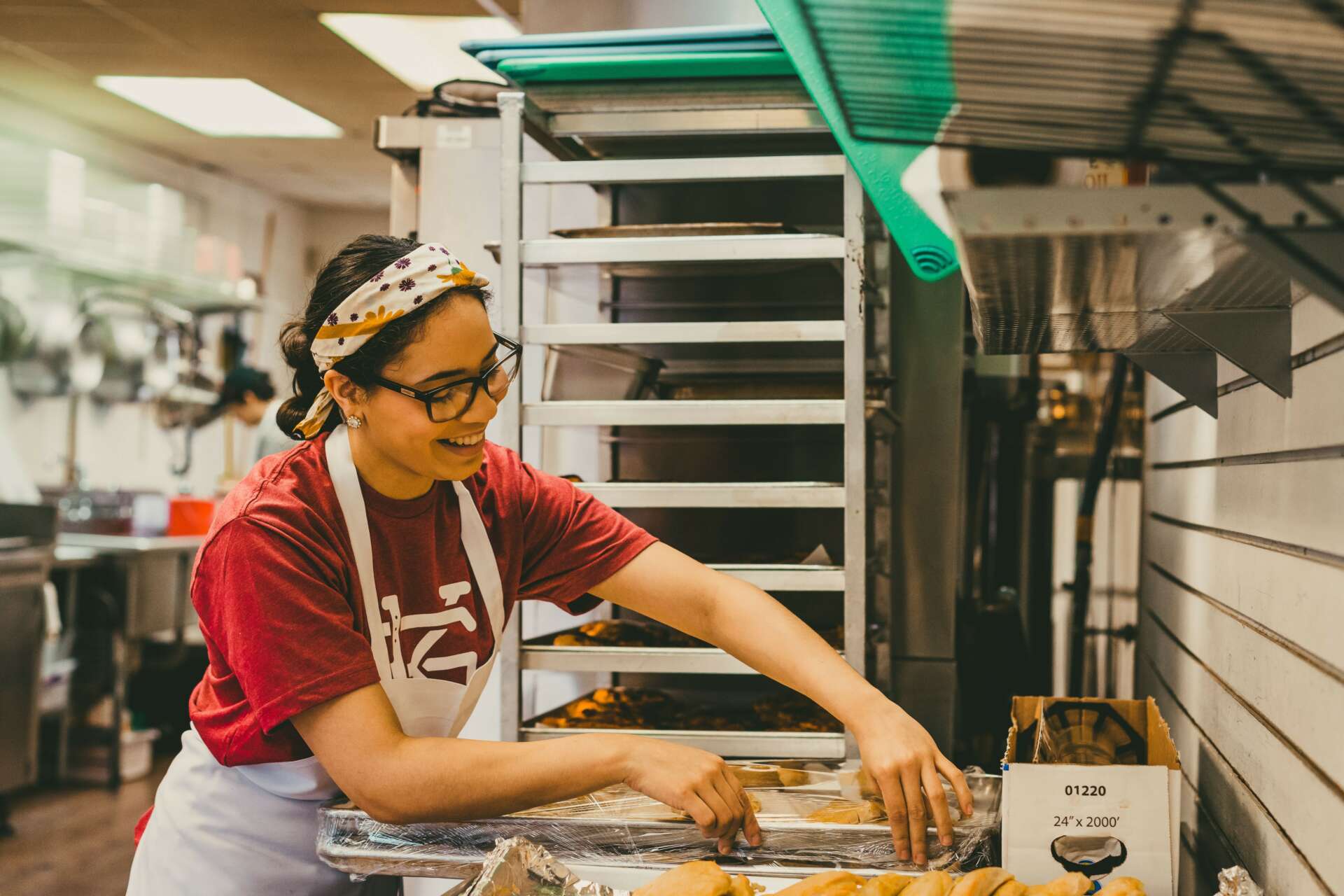
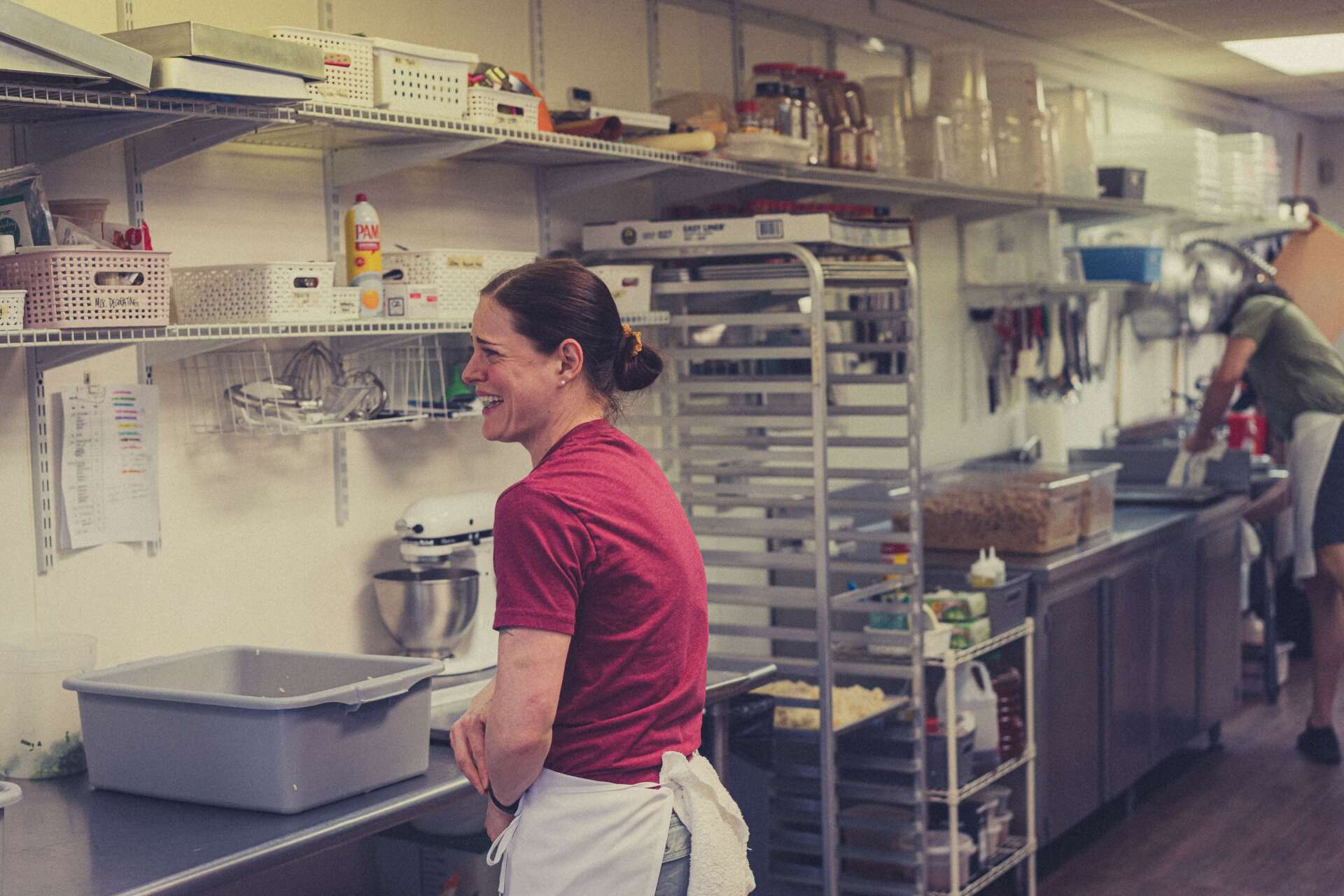
Lucas, love having you share your insights with us. Before we ask you more questions, maybe you can take a moment to introduce yourself to our readers who might have missed our earlier conversations?
*my previous answer might have been overlong and contains some of the information asked here but Ill touch on what hasn’t been covered.
When starting The Strong Kitchen, I thought we would serve mostly athletes as I found working with professionals to be the pinnacle of what one could achieve. What I quickly began to realize is that, aside from very well-paid pro athletes, most high school, college and semi-pro athletes do not have the excess income to spend on prepared meals. I found our largest customer base to be women, ages 25-55, often purchasing for their household.
In addition, the meals that have sold the best for us usually taste like they aren’t as healthy as the calories predict, meaning convenience, taste and quality matter more to the bulk of our customers than extremely specific macronutrients. They want a healthy meal, but it has to taste good first and foremost. This has led to my personal mantra of “customers vote with their dollars” and whatever customers purchase the most of, whether it’s a specific type of meal (like a pasta dish) or protein source (like a flat iron steak), if it sells a lot, we emulate more meals along that vein. In essence, I try to let the customers tell me what they want by following where they spend their money.
I believe the most crucial aspect that sets us apart from others are our standards. I take a fine-dining approach to details in our kitchen and service, from how we cut the onions, the color we develop when roasting chicken thighs, maintaining an immaculate kitchen and responsiveness to customers. In essence, my standard for each aspect is extremely high and I believe this has been what has led us to other opportunities. Over time, customers who enjoy the food are often unexpectedly, people of influence! And these customers had opened doors for us for working with other companies, providing meals to drug-addiction recovery programs, grants from CVS to work with at-risk families, college athletics such as Yale and many consulting opportunities.
What’s most important is that you never waver on your standards and make choices that allow you to take the easy way out. That bleeds over into your staff as well as the customer experience.
One of my proudest accomplishments is how diligently we worked during COVID, providing uninterrupted experience and quality service to our customers despite the massive industry disruptions. Our high standards and practices carries us through the most challenging times and allowed us to survive and thrive in one of the most difficult periods of owning The Strong Kitchen.


What’s a lesson you had to unlearn and what’s the backstory?
One key lesson I learned relatively early on what not to compare yourself and business to others. It is helpful to find inspiration and creative influence from others doing similar things, but not to get caught up in what you perceive as success in another business. We had many people telling us early on we needed to be strict Paleo, eliminating an enormous amount of food choices and I felt that Paleo, fueled by the Crossfit craze, would burn out and fade away. It did, as did many of the companies I was told to emulate. This is not to say you should ignore sage advice from trusted mentors, peers or industry leaders, but that you should never try to “be” someone else. If you have something special and believe in it whole-heartedly, lean into that with everything you have. That is, in fact, what makes you and your business unique, and abandoning that to copy a competitor means giving into fear, doubt and ultimately betting against yourself.

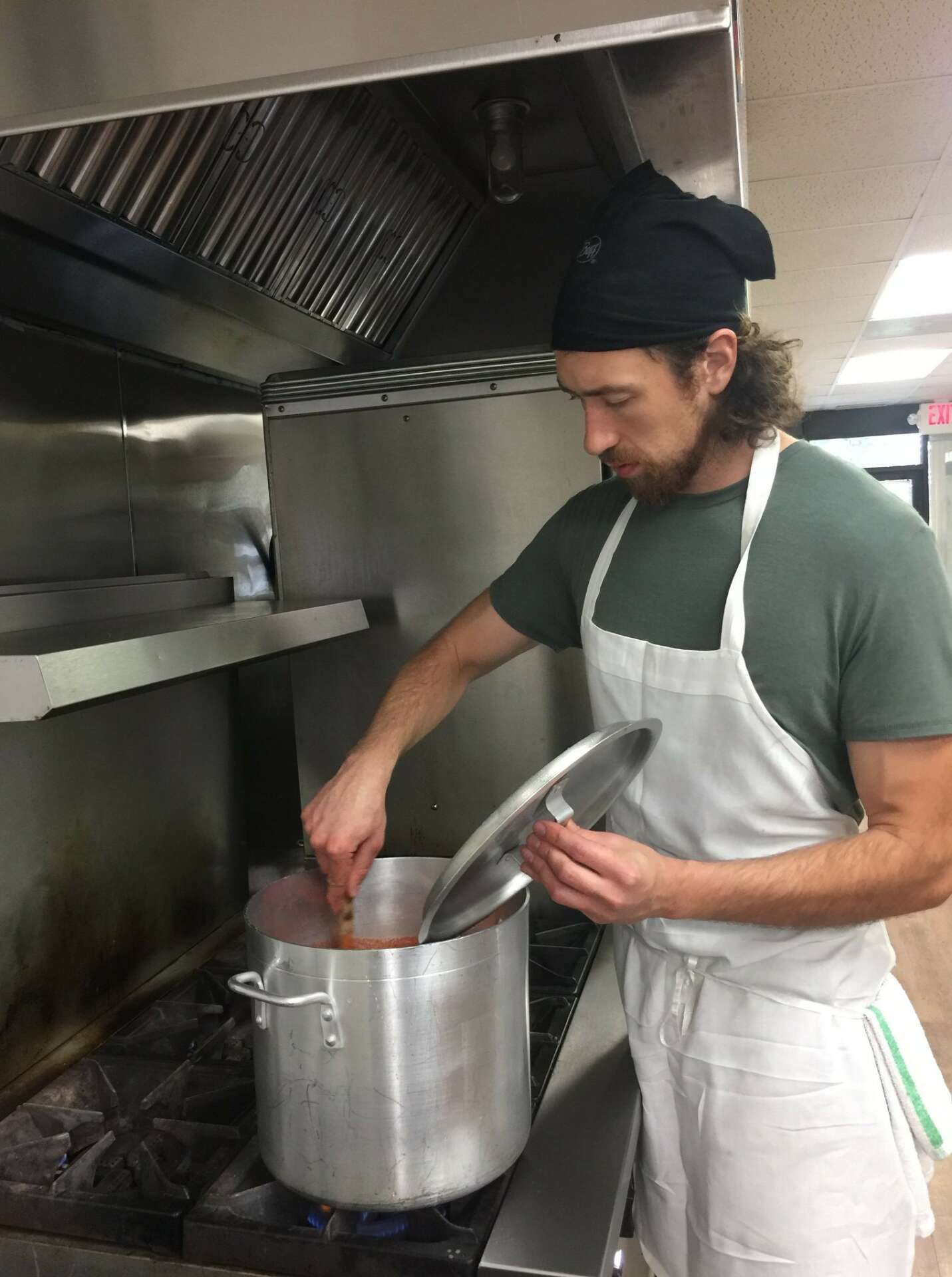
Has your business ever had a near-death moment? Would you mind sharing the story?
During our earlier years, when building out our kitchen, I applied for $16000 grant from CT for new businesses who needed funding to get off the ground. This grant in particular required you to spend a matching amount before they would award you the money, which in retrospect, does not many any sense if a business needs cash. This program, I learned, was being phased out and despite being months in the process, spending well over the matching $16000 on my end and bending over backward for paperwork minutiae, I was told that I did not qualify to receive the funds.
The bones of our kitchen had been built at this time and I had spent all of my savings, a $10,000 loan from my mom and a small portion of my 401k.
The program initially had a caveat that as long as your had applied (even before approval), any money spent after the application process would count towards your matching $16000. Because of the constant back and forth with the state, I did not trust that this caveat would be upheld and had a second person confirm that it was in fact, legitimate and then saved their emails and printed them out (due diligence will save your butt)..
After all money was spent on the project, paperwork completed and process approved, I had $800 left to my name. This was with a wife, a dog, a car loan and rent both for my home and the business. The state tried to backtrack on their post-application qualifiers for spending money and told me none of my purchases qualified because they were made before final approval. I presented them the multiple saved emails from two employees (one being the department head) that disputed this.
They still dragged their feet awarding me the money, engaging in a lengthy secondary bank accrediting process while my personal account was getting closer to $0 every day.
Eventually, they paid out and I had some savings to use to run the business until we got our feet under us, but it taught me a few key lessons.
One is that you never say anything is done, until it’s done. With vendors, contractors, banks and the like, many issues can arise that sour a good deal or drive a project off track. Putting all your eggs in one basket hoping that someone else will solve your problem is naive. Only because of my inherent distrust of local governing authorities did I save those emails, otherwise they would have never awarded me the grant money.
If you want to do something, do your research first, then go all in. Failure usually happens when you either go in blind, or give up. If you’ve done your homework and then put everything you have into a project or idea, it usually succeeds.
Cashflow is everything to a business. If you are brand new, having fiscal restriction is pretty normal. If you’re are years into a venture and aren’t making money, you are one bad day away from losing it. Once you gain cashflow, allocate whatever you need to cover overhead, pay yourself and save. After this experience I never wanted to have my back against the wall financially again, especially with people relying on me.
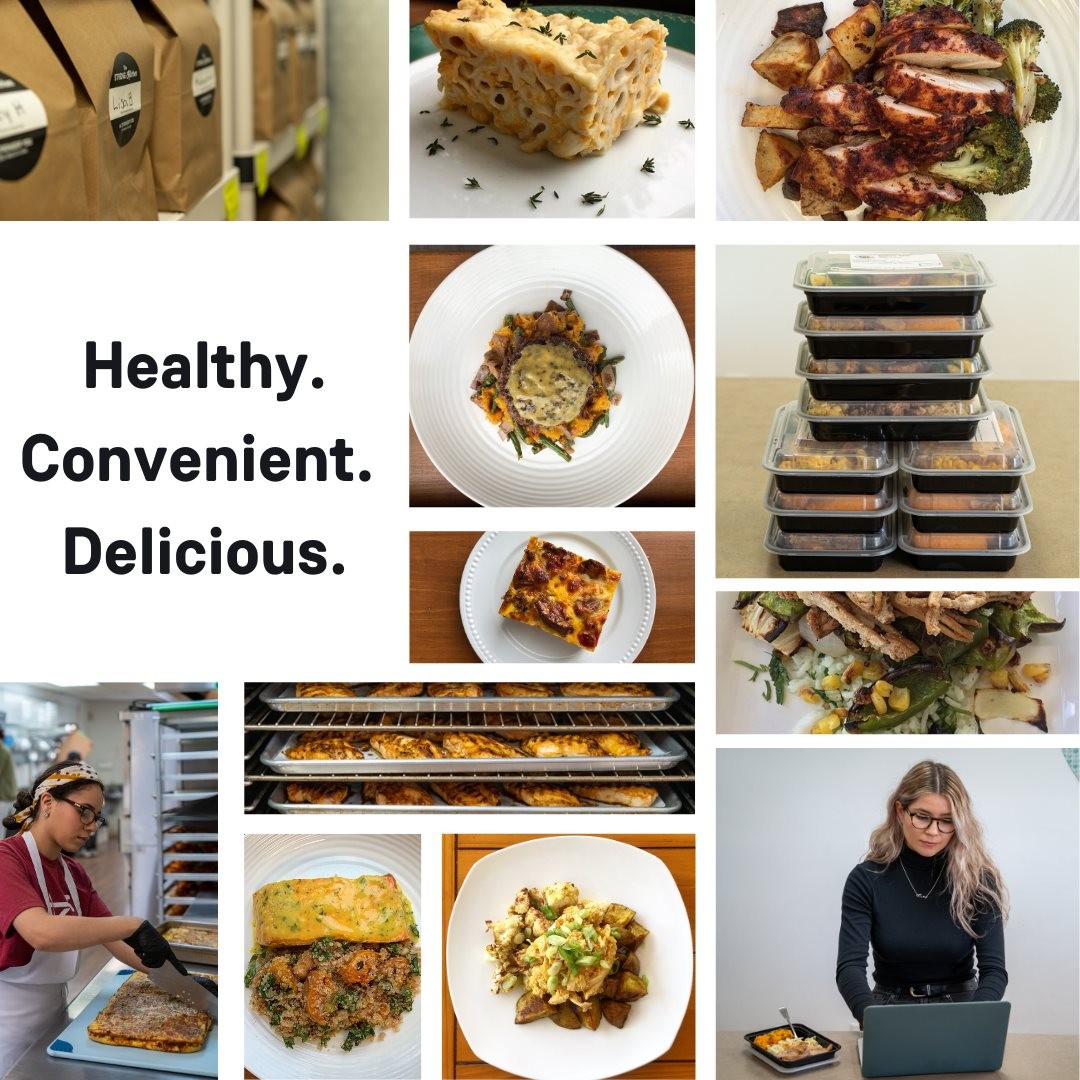
Contact Info:
- Website: www.thestrongkitche.com
- Instagram: @thestrongkitchen
- Facebook: @thestrongkitchen
Image Credits
Pictures taken by Scott Tribby @tribby.photography


